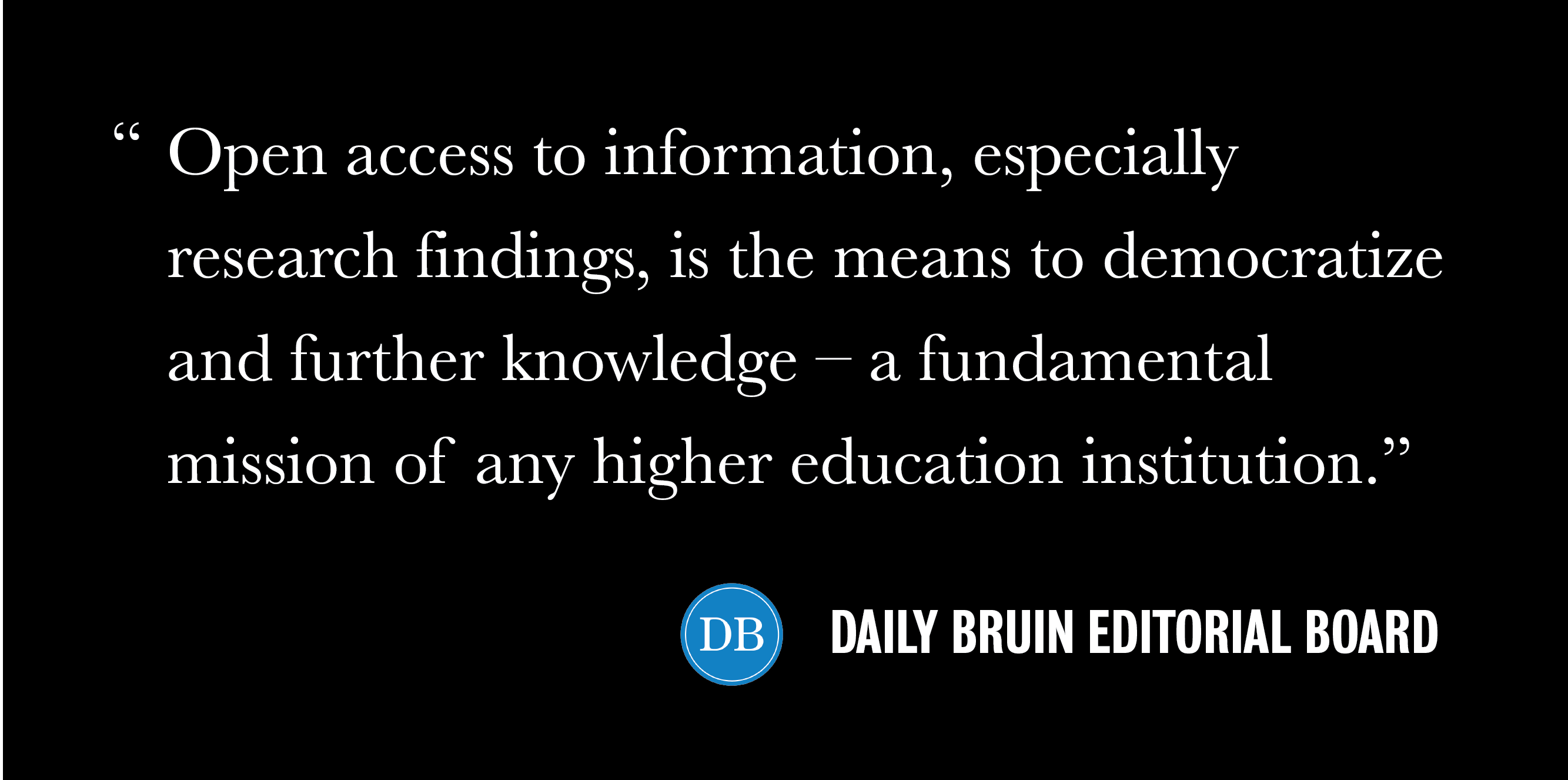Editorial: UC challenges costly research publishing methods, fights for open access

By Editorial Board
Jan. 6, 2019 10:30 p.m.
The University of California’s motto may be “Fiat Lux”, but administrators have rallied behind a different line: Let there be knowledge.
California’s premier research university system has been brawling since last year with Elsevier, a publishing giant, over open access to the company’s many journals. Research institutes rely heavily on journals to share findings and build on others’ discoveries, but have long been encumbered by the incessant costs that come with publishers’ journal subscription contracts. The UC itself forked over $10 million to Elsevier last year to give its researchers access to papers and journals.
The University, rightfully so, seems to have had enough of Elsevier’s subscription fees, threatening last month to not renew its five-year contract with the company if it does not adopt a more open-access approach to publicly funded research findings.
Specifically, the UC is demanding Elsevier and other major publishers make publicly funded research immediately available to the public upon publishing. All the while, administrators have asked University researchers not to publish in Elsevier-managed journals if possible, hinting at the prospect of limited journal access if it cannot strike a deal.
Open access to information, especially research findings, is the means to democratize and further knowledge – a fundamental mission of any higher education institution. The University is right to challenge the status quo of pricey contracts with publishers and should not back down in its negotiations with Elsevier and other publishing behemoths.
Publishers like Elsevier often tack on individual article-processing fees to the requested papers and also require authors to pay a fee to make their work accessible to the public. This system not only forces universities to pay huge sums to gain access to an extensive array of papers – not to mention to access work their own researchers publish – but also deters authors from making their work open access.
In other words, major publishers are stifling both ends of the knowledge transfer.
The UC has insisted on Elsevier offering a “read-and-publish” subscription model, in which institutions can pay an annual fee not only to get unfettered access to articles, but also to allow their researchers to make their work immediately available to the public. As administrators have rightly pointed out, this system offers a radical yet necessary change to the way scholarly information is shared between researchers.
And the University is arguably the best-poised research institution to wage this fight against Elsevier and the like. While other institutions have hesitated to enter into negotiations with powerful journal publishers, the UC carries a formidable clout, given its prestige and the fact that it contributes about 10 percent of the research produced in the U.S.
That’s not to say the back-and-forth hasn’t come at a cost. Elsevier boasts an impressive suite of journals, and researchers depend on these recognized spaces to share their work and establish credence. Failed negotiations could also result in the University having limited access to critical scientific journals – a handicap for researchers.
Still, the fight for open access is bigger than any one researcher or lab. Open access more readily facilitates academic breakthroughs, and institutions will only increasingly be motivated to jump ship on traditional publishers and seek, if not create, alternative, open platforms to publish their work.
It’s up to Elsevier and other publishers whether limited access is worth that cost.

